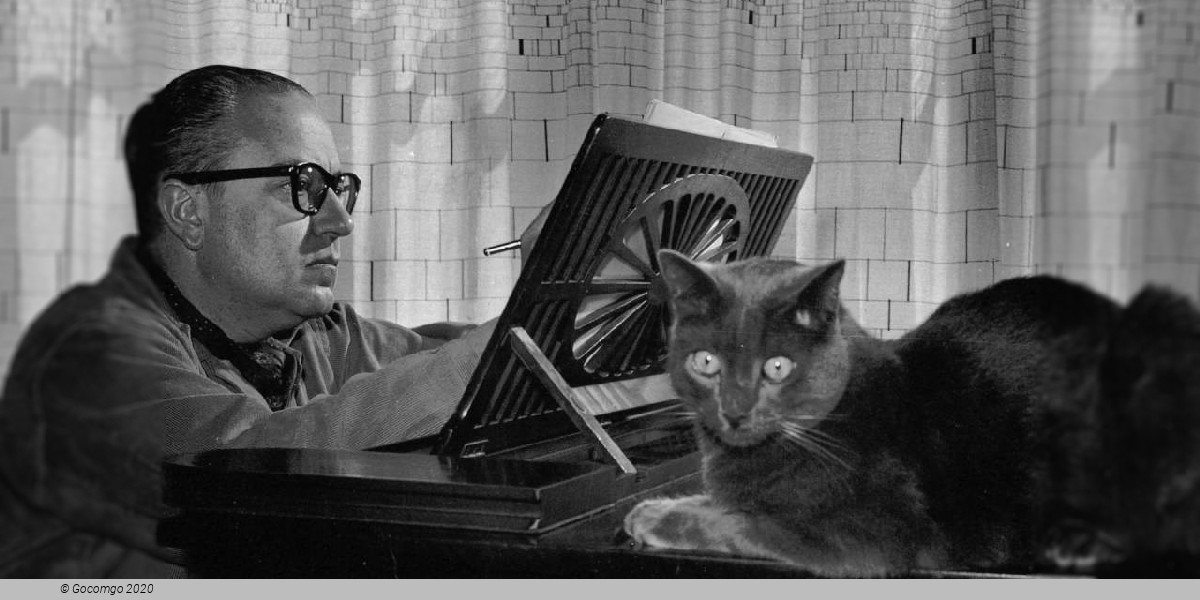Events2 results
About
Alberto Evaristo Ginastera was an Argentinian composer of classical music. He is considered one of the most important 20th-century classical composers of the Americas.
Ginastera was born in Buenos Aires to a Catalan father and an Italian mother. During his later years, he preferred to use the Catalan and Italian pronunciation of his surname – IPA: [dʒinasˈteɾa], with an initial soft 'G' like that of English 'George' – rather than with a Spanish 'J' sound (IPA: [xinasˈteɾa]).
Ginastera studied at the Williams Conservatory in Buenos Aires, graduating in 1938. As a young professor, he taught at the Liceo Militar General San Martín. After a visit to the United States in 1945–47, where he studied with Aaron Copland at Tanglewood, he returned to Buenos Aires and co-founded the League of Composers. He held a number of teaching posts. Among his notable students were Ástor Piazzolla (who studied with him in 1941), Alcides Lanza, Waldo de los Ríos, Jacqueline Nova and Rafael Aponte-Ledée. See: List of music students by teacher: G to J#Alberto Ginastera.
In 1968 Ginastera moved back to the United States, and in 1970 to Europe. He died in Geneva, Switzerland, at the age of 67 and was buried in the Cimetière des Rois there.
Ginastera grouped his music into three periods: "Objective Nationalism" (1934–1948), "Subjective Nationalism" (1948–1958), and "Neo-Expressionism" (1958–1983). Among other distinguishing features, these periods vary in their use of traditional Argentine musical elements. His Objective Nationalistic works often integrate Argentine folk themes in a straightforward fashion, while works in the later periods incorporate traditional elements in increasingly abstracted forms.
Many of Ginastera's works were inspired by the Gauchesco tradition. This tradition holds that the Gaucho, or landless native horseman of the plains, is a symbol of Argentina.
His Cantata para América Mágica (1960), for dramatic soprano and 53 percussion instruments, was based on ancient pre-Columbian legends. Its West Coast premiere was performed by the Los Angeles Percussion Ensemble under Henri Temianka and William Kraft at UCLA in 1963.



